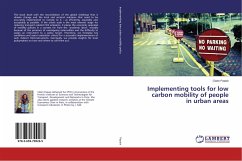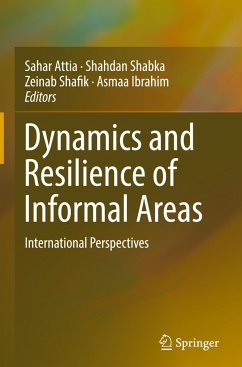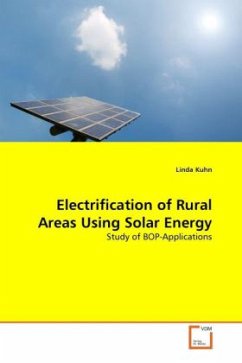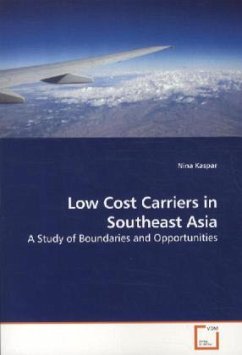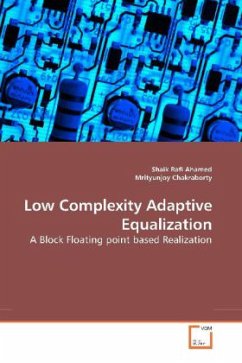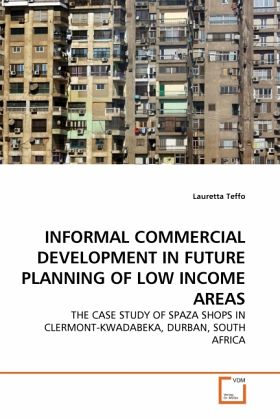
INFORMAL COMMERCIAL DEVELOPMENT IN FUTURE PLANNING OF LOW INCOME AREAS
THE CASE STUDY OF SPAZA SHOPS IN CLERMONT-KWADABEKA, DURBAN, SOUTH AFRICA
Versandkostenfrei!
Versandfertig in 6-10 Tagen
32,99 €
inkl. MwSt.

PAYBACK Punkte
16 °P sammeln!
Spaza shop operation in Black townships of South Africa is a reaction to Apartheid Town Planning informed by strict land-use control and racial zoning. It is an informal response to lack of commercial facilities in Black townships. It is significant in low income communities because of lack of personal mobility by the poor Spaza shop operation is not only a form of income generation, but is also a local economic development initiative, circulating money within the neighbourhood. It is only through changes from prescriptive and paternalistic land-use planning which is not location specific, tha...
Spaza shop operation in Black townships of South Africa is a reaction to Apartheid Town Planning informed by strict land-use control and racial zoning. It is an informal response to lack of commercial facilities in Black townships. It is significant in low income communities because of lack of personal mobility by the poor Spaza shop operation is not only a form of income generation, but is also a local economic development initiative, circulating money within the neighbourhood. It is only through changes from prescriptive and paternalistic land-use planning which is not location specific, that desirable planning can ensue. This should incorporate community participation in all decision-making processes of development. This should also include the incorporation of communities' priorities and needs in modification of the Town Planning Scheme. In addition to community involvement through development initiatives, a strong and supportive institutional policy framework is a prerequisite in responding to rapid and continuous change defining contemporary cities



